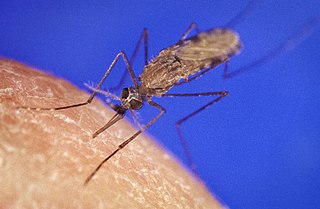Related Research Articles

Extinction is the termination of a kind of organism or of a group of kinds (taxon), usually a species. The moment of extinction is generally considered to be the death of the last individual of the species, although the capacity to breed and recover may have been lost before this point. Because a species' potential range may be very large, determining this moment is difficult, and is usually done retrospectively. This difficulty leads to phenomena such as Lazarus taxa, where a species presumed extinct abruptly "reappears" after a period of apparent absence.

Tortoises are reptiles of the family Testudinidae of the order Testudines. They are particularly distinguished from other turtles by being exclusively land-dwelling, while many other turtle species are at least partly aquatic. Like other turtles, tortoises have a shell to protect from predation and other threats. The shell in tortoises is generally hard, and like other members of the suborder Cryptodira, they retract their necks and heads directly backwards into the shell to protect them.

The Tipulomorpha are an infraorder of Nematocera, containing the crane flies, a very large group, and allied families.

The Culicomorpha are an infraorder of Nematocera, including mosquitoes, black flies, and several extant and extinct families of insects.

The Bibionomorpha are an infraorder of the suborder Nematocera. One of its constituent families, the Anisopodidae, is the presumed sister taxon to the entire suborder Brachycera. Several of the remaining families in the infraorder are former subfamilies of the Mycetophilidae, which has been recently subdivided. The family Axymyiidae has recently been removed from the Bibionomorpha to its own infraorder Axymyiomorpha.
Neontology is a part of biology that, in contrast to paleontology, deals with living organisms. It is the study of extant taxa : taxa with members still alive, as opposed to (all) being extinct. For example:

The Darwin Region languages are a small family of poorly attested Australian Aboriginal languages of northern Australia proposed by linguist Mark Harvey. It unites the pair of Limilngan languages with two language isolates:
Anomalomyidae is a family of extinct muroid rodents from Europe.
The Early Miocene is a sub-epoch of the Miocene Epoch made up of two stages: the Aquitanian and Burdigalian stages.

A species that is extinct in the wild (EW) is one that has been categorized by the International Union for Conservation of Nature as known only by living members kept in captivity or as a naturalized population outside its historic range due to massive habitat loss.

Several extinct species have been postulated, but owing to a lack of evidence they can only be regarded as hypothetical extinct species. They have caused confusion, as they may have been a separate species, a subspecies, an introduced species or a misidentification.

The Braque Dupuy, also known as the Dupuy Pointer, was a breed of pointer from the Poitou region of France, it is believed to be extinct.
Wangerooge Frisian is an extinct dialect of the East Frisian language, formerly spoken on the East Frisian island of Wangerooge. Wangerooge Frisian was a part of the Weser group of dialects which included the Wangerooge and the equally extinct Wursten dialect. The last speaker died in 1953.
Hoti is an extinct language of Seram, Indonesia.
Ware is an extinct Bantu language near Lake Victoria in East Africa.
Zire (Sîshëë), also known as Nerë, is an extinct Oceanic language of New Caledonia. Speakers 4. Sometimes considered a dialect of Ajië
Salas is a nearly extinct language of Seram, Indonesia.
Paulohi is a nearly extinct Austronesian language spoken on Seram Island in eastern Indonesia.
Llaqta Qulluy is an archaeological site in Peru. It is situated in the Huancavelica Region, Huancavelica Province, Acoria District.

Nanhsiungchelyidae is an extinct family of land turtles known from Cretaceous deposits in Asia and North America. Nanhsiungchelyids were more terrestrial than many of their contemporaries, and may have gone extinct at the end of the Cretaceous as a result.
References
- ↑ The Stropheodontacea, part I: Leptostrophiidae, Eostropheodontidae and Strophonellidae. CW Harper Jr and AJ Boucot, Palaeontographica Abteilung A, 1978